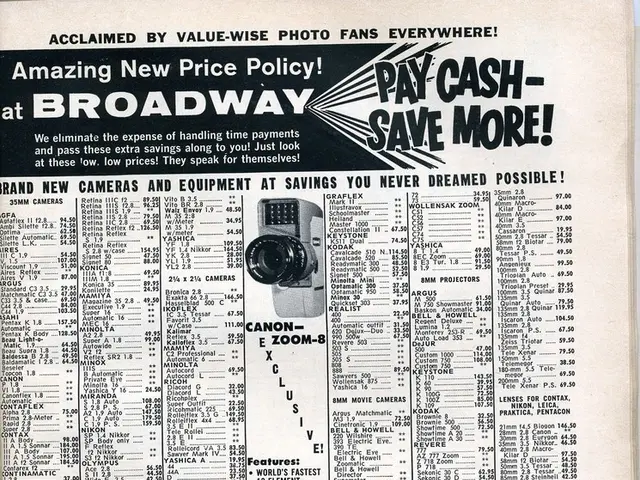Bank inquiry over withdrawal of personal funds left me baffled... humor fell flat, now forced to change banking institutions.
In an eyebrow-raising scenario, an Australian entrepreneur found himself in a pickle when a harmless joke led to him being barred from withdrawing his own money. Rohan Cannon, owner of natural wellness and skincare company CannonBalm, shared his predicament on TikTok.
Apparently, Cannon had to send a payment to overseas manufacturers for the equipment he buys for his business. When he went to the bank to transfer the funds, bank staff questioned the large amount (approx. $3,500) and inquired about the purpose of the transaction. Despite explaining it was for manufacturing equipment, he was asked to explain again via phone banking.
Feeling the situation was getting redundant, Cannon joked, "I need it for cocaine and hookers," only to discover that his money was now off-limits for international transfers. The bank explained they couldn't support the illegal drug trade. After some back and forth, Cannon concluded he would have to shift banks and go through the hassle of changing all his banking details, just to make a simple purchase.
"That's how f** crazy the world has become," said Cannon, expressing his discontent. Meanwhile, Twitter users responded to the incident, with some backing Cannon's privacy rights and others defending the bank's due diligence measures to protect against scams and money laundering.
The scenario highlights the challenge small business owners face in navigating the stringent due diligence process for international transactions by banks, particularly in the context of anti-money laundering (AML) regulations. In Australia, banks use a risk-based approach, which can subject small businesses to more stringent scrutiny. The AML/CTF regulations require banks to comply with reporting requirements and share information, which can pose challenges in dealing with countries with different privacy regulations. Moreover, the travel rule compliance can lead to additional costs and operational burdens for small businesses.
The upcoming AML/CTF reforms, effective from March 31, 2026, will expand AUSTRAC's oversight to nearly 100,000 new entities, potentially affecting small businesses. While the intent is to prevent money laundering and terrorism financing, the increased regulatory environment can place additional burdens on small business owners, particularly those involved in international transactions or high-risk sectors. In this case, a simple joke resulted in unforeseen consequences for Cannon, underscoring the need for clearer communication and understanding between banks and their customers regarding international transactions.
- The news about Rohan Cannon, a small business owner, being barred from withdrawing funds due to a joke he made concerned many other entrepreneurs, highlighting the challenges in navigating international banking-and-insurance for businesses.
- The entertainment industry has been buzzing with the story of CannonBalm's owner, as social media platforms like TikTok and Twitter are filled with discussions about his predicament, addressing privacy rights and bank due diligence measures.
- In the business world, small industries like Cannon's face numerous obstacles when dealing with international transactions, as demonstrated by Rohan Cannon's case, where anti-money laundering (AML) regulations and stringent banking procedures created unfortunate consequences.
- As a lifestyles issue, stories like Cannon's bring light to the challenges faced by small business owners, emphasizing the importance of clear communication and understanding between banks and their customers to avoid unexpected complications.
- The banking and insurance sector continues to face criticism in Australia for its strict AML/CTF regulations, with forthcoming reforms set to affect nearly 100,000 additional entities from March 31, 2026, potentially burdening small enterprises involved in international transactions or high-risk sectors.







